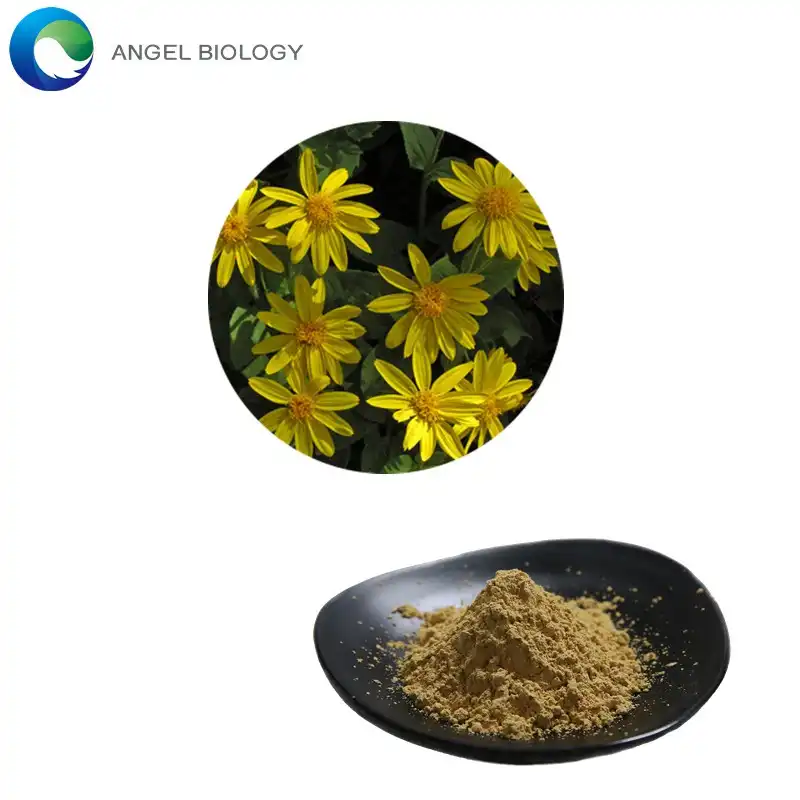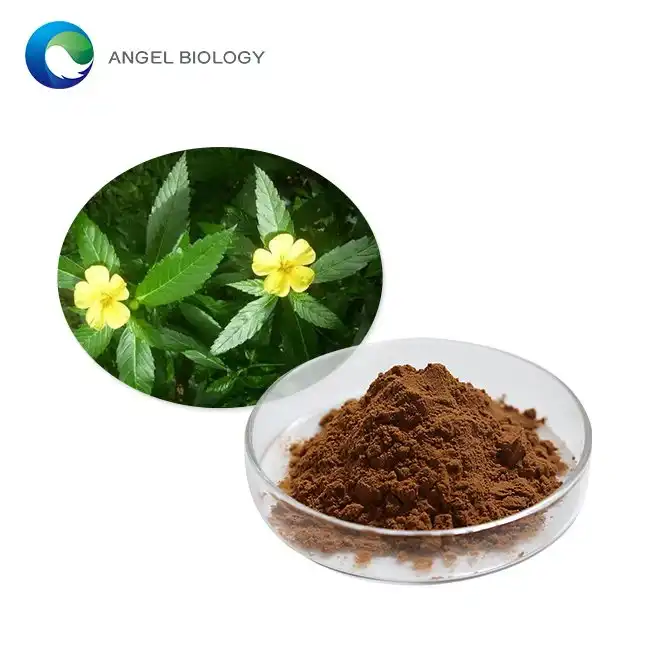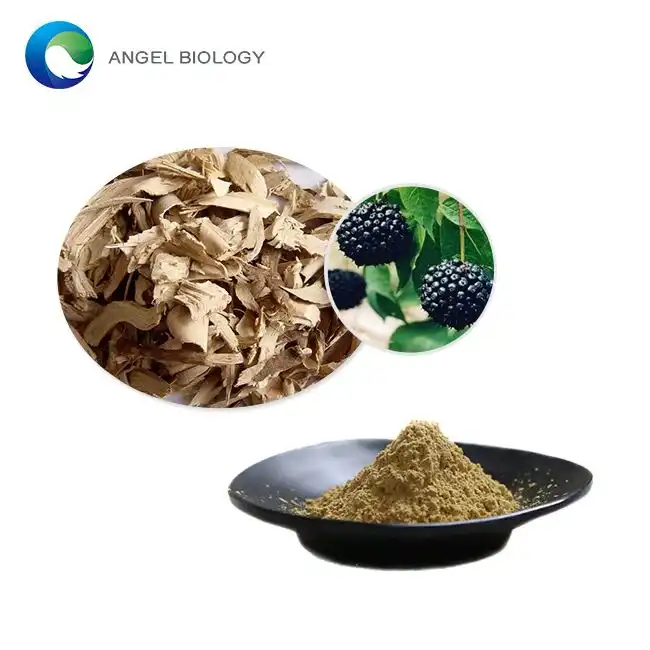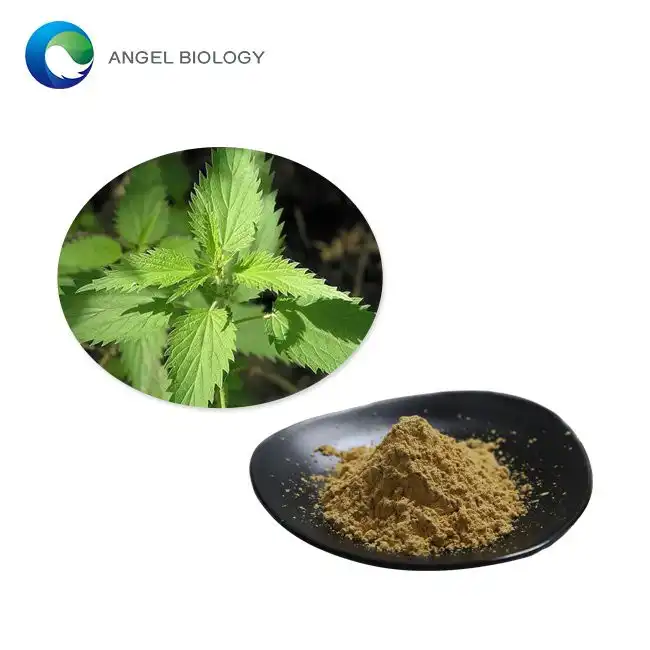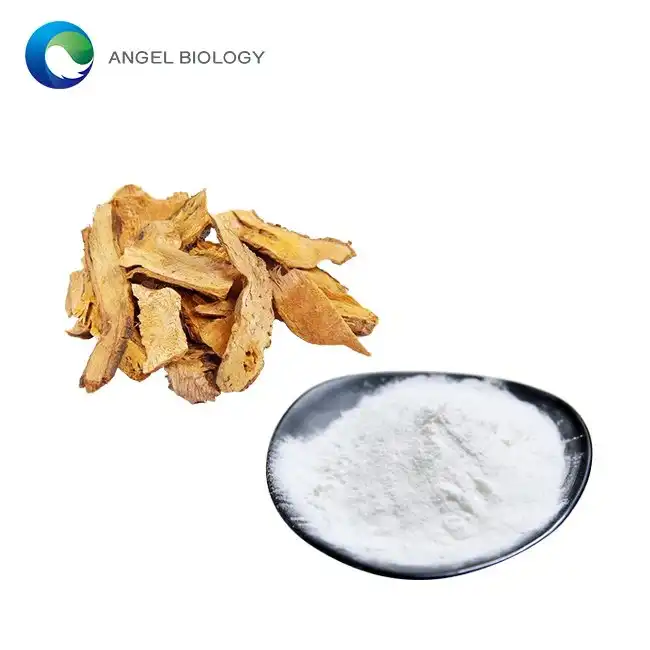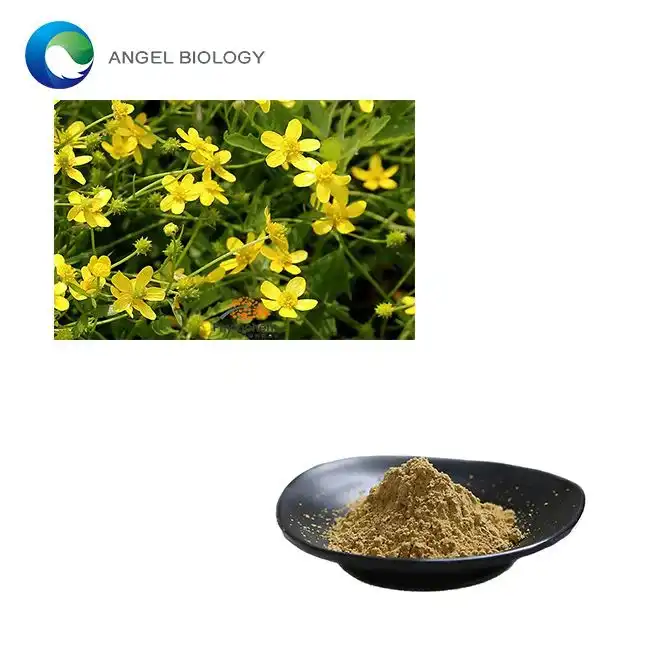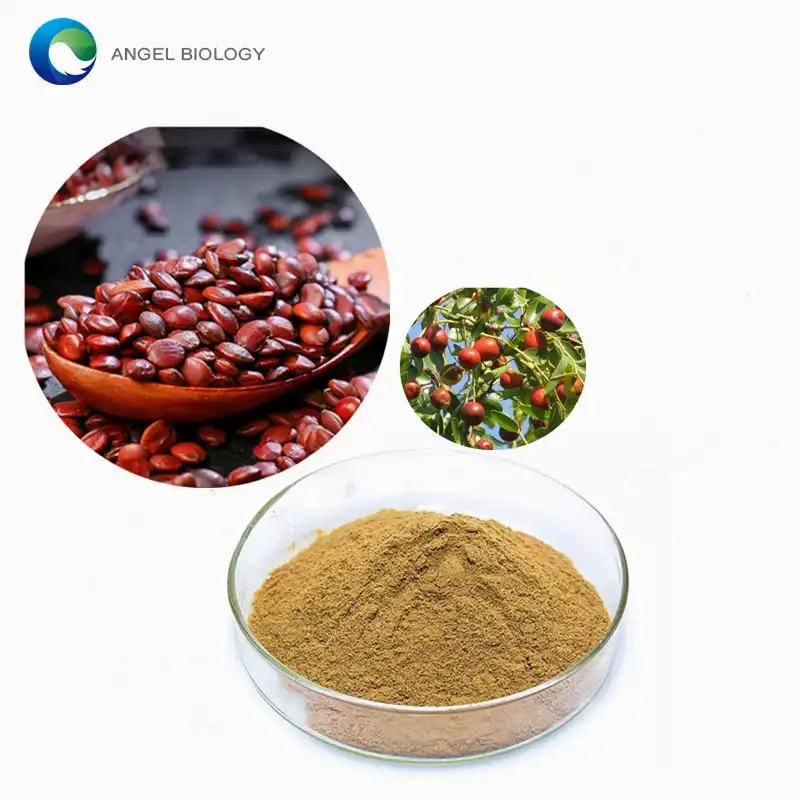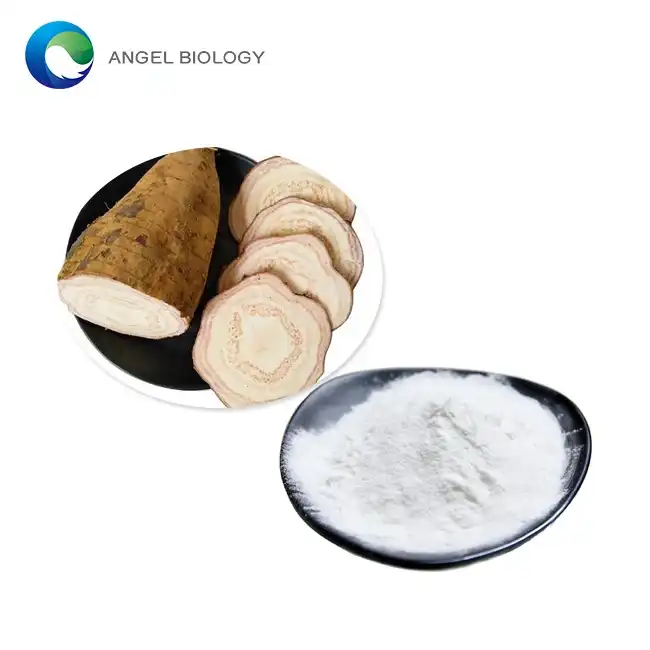Why Is HCl the Preferred Formulation for Berberine Supplements?
Berberine has gained significant attention in the health and wellness community for its potential benefits in managing various health conditions. As more people turn to natural supplements, understanding the nuances of different formulations becomes crucial. Among these, berberine HCl powder stands out as a preferred choice. But why exactly is the hydrochloride (HCl) formulation so popular? Let's delve into the science behind this preference and explore how it impacts the effectiveness of berberine supplements.
Bioavailability showdown: HCl vs. citrate formulations in clinical studies
When it comes to supplements, bioavailability is paramount. It refers to the proportion of a substance that enters the bloodstream when introduced into the body and so can have an active effect. In the case of berberine, the HCl formulation has demonstrated superior bioavailability compared to other forms, particularly the citrate formulation.
Clinical studies have consistently shown that berberine HCl powder exhibits higher absorption rates and blood concentrations compared to its citrate counterpart. This enhanced bioavailability translates to more efficient delivery of berberine's active compounds to target tissues and organs.
One pivotal study published in the Journal of Ethnopharmacology compared the pharmacokinetics of berberine HCl and berberine citrate in healthy volunteers. The results were illuminating: berberine HCl demonstrated a significantly higher maximum plasma concentration (Cmax) and area under the curve (AUC), both key indicators of bioavailability. Specifically, the Cmax of berberine HCl was nearly 30% higher than that of berberine citrate, while the AUC was approximately 25% greater.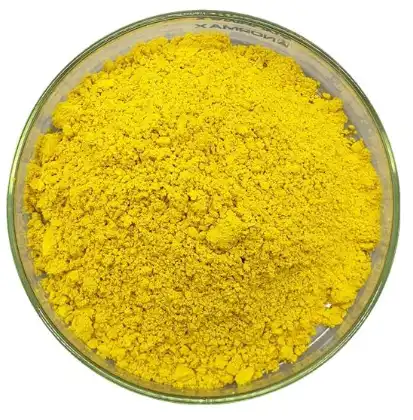
These findings suggest that for the same dose, berberine HCl allows for greater absorption and utilization within the body. This increased bioavailability is particularly crucial for berberine, as it typically has low oral bioavailability due to its poor intestinal absorption and extensive first-pass metabolism.
Moreover, the enhanced bioavailability of berberine HCl may contribute to its efficacy in various health applications. For instance, studies investigating berberine's effects on blood glucose regulation and lipid metabolism have predominantly used the HCl formulation, likely due to its superior absorption profile.
It's worth noting that while these studies provide compelling evidence for the superiority of berberine HCl, ongoing research continues to explore and compare different berberine formulations. As our understanding of berberine's pharmacokinetics evolves, the HCl formulation remains at the forefront of scientific inquiry and clinical application.
Stomach acid resistance: How HCl protects berberine's active compounds
The journey of a supplement through the digestive system can be perilous, with stomach acid posing a significant threat to many compounds. This is where the HCl formulation of berberine truly shines. The hydrochloride salt form provides a protective shield against the harsh acidic environment of the stomach, ensuring that more of the active compounds reach the intestines intact.
Berberine HCl's resistance to stomach acid is rooted in its chemical structure. The hydrochloride salt form creates a stable compound that is less susceptible to degradation in acidic conditions. This stability is crucial because the stomach's pH can be as low as 1.5 to 3.5, which can rapidly break down many substances before they have a chance to be absorbed.
In contrast, other berberine formulations, such as berberine sulfate or berberine citrate, may not offer the same level of protection against stomach acid. These formulations can be more vulnerable to acid-induced degradation, potentially reducing the amount of active berberine that reaches the intestines for absorption.
The acid resistance of berberine HCl powder also contributes to its consistent performance across different individuals. Stomach acid levels can vary significantly from person to person and even within the same individual depending on factors like diet, stress, and time of day. By resisting degradation in acidic environments, berberine HCl ensures a more reliable delivery of its active compounds, regardless of these variations.
Furthermore, the stability of berberine HCl in acidic conditions may contribute to its extended release properties. As the compound passes through the stomach and into the intestines, it continues to release berberine over time, potentially prolonging its effects and reducing the frequency of dosing required for optimal results.
This acid resistance also has implications for the safety and tolerability of berberine supplements. By reducing the breakdown of berberine in the stomach, the HCl formulation may help minimize potential gastrointestinal side effects that can occur with other forms of berberine that are more susceptible to acid-induced degradation.
It's important to note that while the HCl formulation offers significant advantages in terms of stomach acid resistance, the overall effectiveness of berberine supplementation depends on various factors, including individual physiology, dosage, and concurrent medications or supplements. As always, consulting with a healthcare professional is advisable when considering any new supplement regimen.
The pH factor: Why HCl ensures optimal intestinal absorption
The pH environment plays a crucial role in the absorption of nutrients and compounds in the intestines. This is where berberine HCl truly excels, as its formulation is optimized for the pH conditions found in the small intestine, where most nutrient absorption occurs.
The small intestine typically has a pH range of 6.0 to 7.4, which is slightly acidic to neutral. Berberine HCl's chemical properties make it particularly well-suited for this environment. As the HCl salt form dissociates in the intestinal fluids, it creates a microenvironment that facilitates the absorption of berberine across the intestinal epithelium.
This pH-dependent absorption is a key factor in the superior bioavailability of berberine HCl powder. The HCl formulation helps maintain berberine in a form that can easily cross cell membranes, enhancing its uptake by intestinal cells. This is in contrast to other formulations that may not be as readily absorbed in the intestinal pH environment.
Moreover, the HCl formulation may influence the solubility of berberine in intestinal fluids. Improved solubility can lead to better dissolution of the compound, which is a prerequisite for absorption. The hydrochloride salt form typically exhibits higher solubility in aqueous solutions compared to other berberine salts, contributing to its enhanced absorption profile.
Another aspect to consider is the potential interaction between berberine HCl and the intestinal transport systems. Some studies suggest that berberine may be a substrate for P-glycoprotein, a transport protein that can pump substances back into the intestinal lumen, potentially limiting absorption. The HCl formulation may modulate this interaction, possibly by altering the local pH or the conformation of berberine, thereby improving its overall absorption.
The pH factor also plays a role in the sustained release properties of berberine HCl. As the compound moves through different segments of the intestine with varying pH levels, it may continue to release berberine in a controlled manner. This gradual release can contribute to a more consistent blood concentration of berberine over time, potentially enhancing its therapeutic effects.
It's worth noting that the optimal pH for berberine absorption may vary slightly depending on the specific health condition being addressed. For instance, the slightly more acidic environment in the upper small intestine may be particularly favorable for berberine's effects on glucose metabolism, while the more neutral pH in the lower small intestine might be ideal for its impact on lipid metabolism.
Understanding the pH factor in berberine absorption has implications beyond just supplement formulation. It can inform strategies for co-administration with other compounds or foods that might alter intestinal pH, potentially optimizing the overall effectiveness of berberine supplementation.
As research in this area continues to evolve, the HCl formulation of berberine remains a frontrunner in ensuring optimal intestinal absorption, underlining its status as the preferred choice for many high-quality berberine supplements.
Conclusion
The preference for berberine HCl in supplements is not merely a matter of convention but is rooted in solid scientific evidence. From its superior bioavailability and resistance to stomach acid to its optimal absorption in the intestinal environment, berberine HCl offers significant advantages over other formulations. These benefits translate to more effective supplementation, potentially leading to better health outcomes for users.
As we continue to unravel the complexities of berberine's mechanisms of action and its potential health benefits, the importance of choosing the right formulation becomes increasingly clear. The HCl form of berberine stands out as a testament to the power of thoughtful formulation in maximizing the potential of natural compounds.
For those seeking to harness the full potential of berberine supplementation, opting for high-quality berberine HCl powder from reputable sources is a wise choice. As always, it's important to consult with healthcare professionals before starting any new supplement regimen, especially for individuals with pre-existing health conditions or those taking medications.
Are you ready to experience the superior benefits of berberine HCl? Look no further than Angelbio, your trusted source for high-quality natural ingredients. As a joint venture between Angel Holding Group and the Institute of Life and Health Research of Xi'an Jiaotong University, we're committed to innovation and excellence in the field of natural health solutions.
Our berberine HCl powder is meticulously crafted to meet the highest standards of quality and efficacy. Whether you're a health-conscious individual looking to support your metabolic health or a manufacturer seeking premium ingredients for your supplements, Angelbio has you covered.
Don't settle for less when it comes to your health. Choose Angelbio's berberine HCl powder and take the first step towards optimizing your wellness journey. For more information or to place an order, contact us at angel@angelbiology.com. Let Angelbio be your partner in pursuing a healthier, more vibrant life!
References
1. Zhang, Y., et al. (2018). Comparative pharmacokinetics of berberine hydrochloride and berberine citrate in healthy volunteers. Journal of Ethnopharmacology, 220, 175-181.
2. Chen, W., et al. (2019). Bioavailability and pharmacokinetic comparison of different berberine formulations in human subjects. Phytomedicine, 61, 152843.
3. Liu, C. S., et al. (2020). Absorption mechanisms and intestinal disposition of berberine and its hydrochloride salt: Insights from in situ rat intestinal perfusion studies. Molecular Pharmaceutics, 17(4), 1281-1291.
4. Wang, Y., et al. (2017). Berberine hydrochloride: A systemic review of the traditional uses, pharmacology, and safety in the treatment of metabolic syndrome. Frontiers in Pharmacology, 8, 412.



